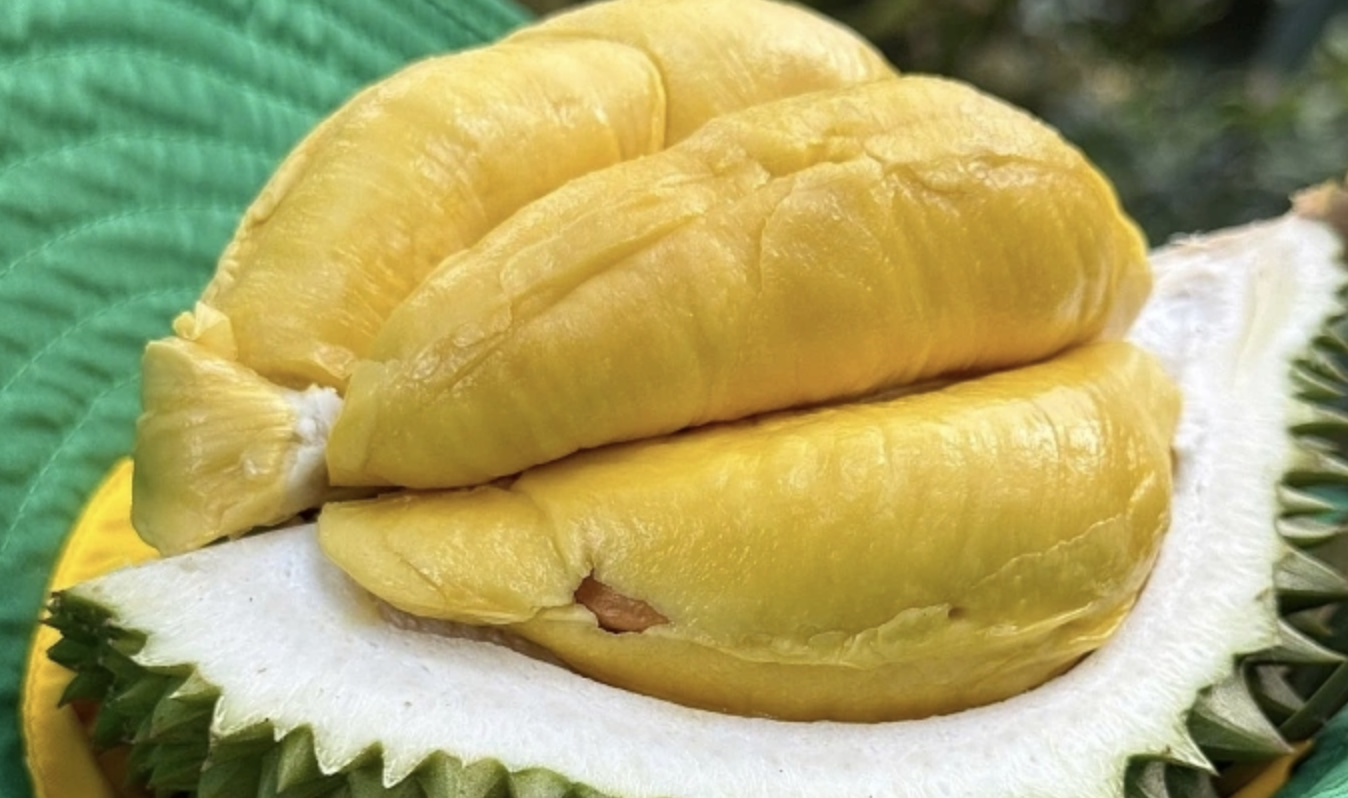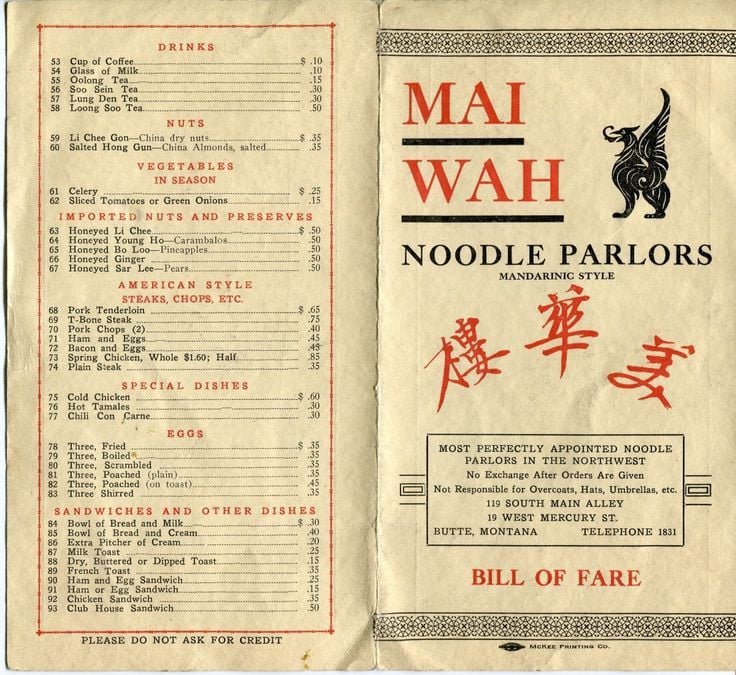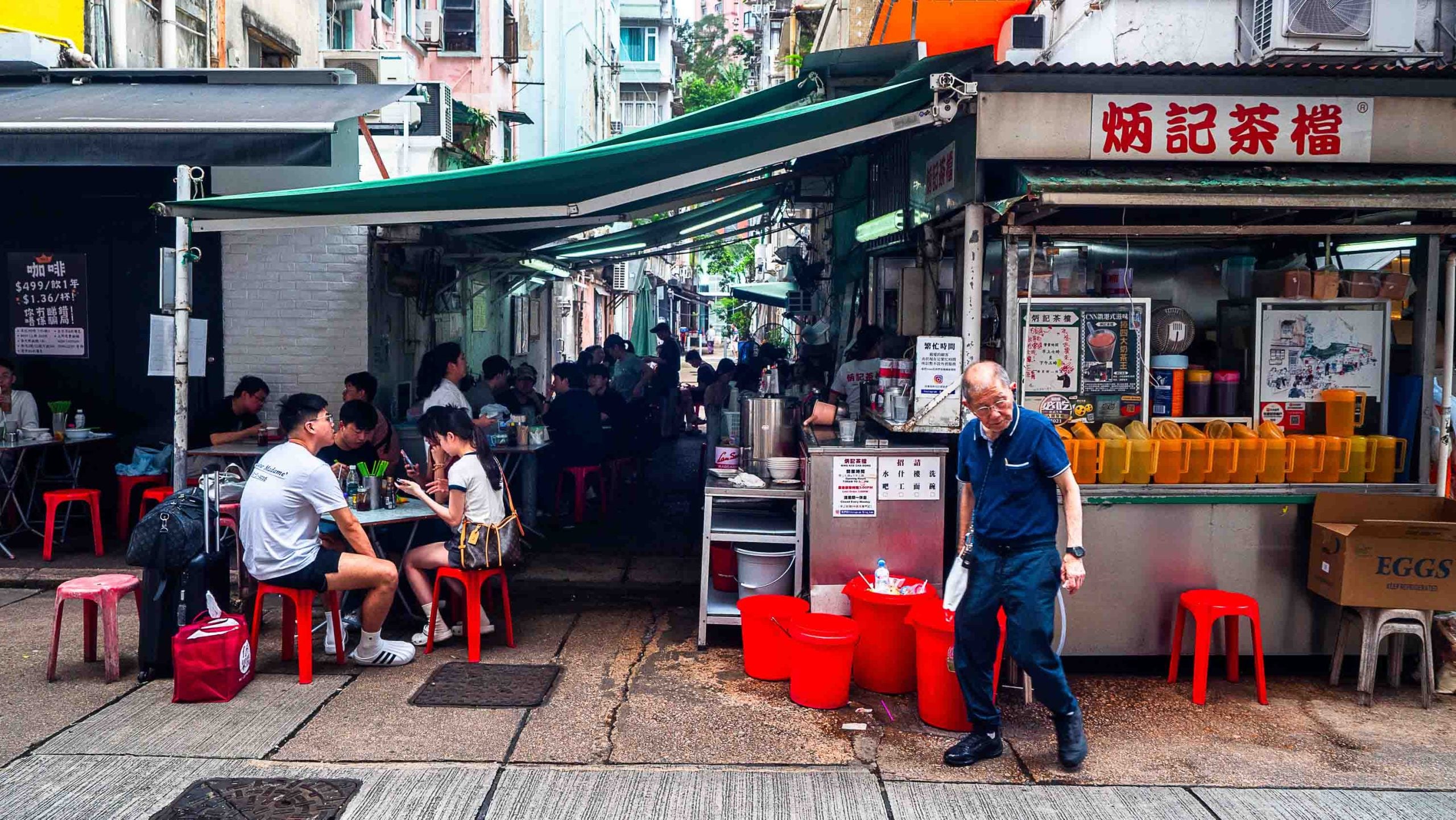Chinese Takeout is a bite-sized, biweekly RADII feature that examines Chinese food from the inside out, by disentangling the (hi)stories behind a single dish or restaurant. Write to us if you have a suggestion or submission.
Mo Chuandi’s rice noodles are not special.
Here in the middle of nowhere, all rice noodles are pretty much equal. They’re the same Guilin-style mifen (米粉) rice noodles that are served all over the region that surrounds the city of Guilin, especially in the smaller county of Yangshuo.
But don’t confuse “ordinary” for “forgettable.” The first time you taste the dish is an experience: savory and sweet, tangy and spicy, soft and crunchy. Diverse ingredients blend together into a meal that never tastes the same twice — an everyday occurrence for the people of Yangshuo.
Our Chinese Takeout series often focuses on institutions that have contributed something special to the changing story of Chinese cuisine. But this time, we’re shining the spotlight on Ms. Mo, whose modest rice noodle operation speaks volumes for millions of unsung eateries across China.

If you’ve spent more than an hour in Yangshuo, an area in southern China renowned for its spectacular scenery of karst formations, you’ll have noticed a trend: rice noodles, beer fish, rice noodles, beer fish, read large-print signs on restaurants in the swanky downtown (swanky because Yangshuo is a major center of international tourism, and a Mecca for rock climbers — there’s a distinct aprés-ski vibe).
Related:
 “We’re On Our Way Up”: China’s King of Rock Climbing on the Journey to Olympic GoldLegendary climber Abond discusses the past and future of China’s climbing scene, and the radical changes occurring as China prepares for the OlympicsArticle Jan 30, 2020
“We’re On Our Way Up”: China’s King of Rock Climbing on the Journey to Olympic GoldLegendary climber Abond discusses the past and future of China’s climbing scene, and the radical changes occurring as China prepares for the OlympicsArticle Jan 30, 2020
You’ll find as many as five restaurants offering the same regional specialty, all clustered together on the same street corner, locked in battle.
It seems redundant. One cook boils her rice noodles and cuts her pickled vegetables, while next door, another washes her pickled vegetables and finishes boiling her rice noodles. But the over-reliance on two or three dishes makes more sense in the context of Yangshuo’s history — a sleepy town in the countryside, known across China for its landscape and a few key dishes, starts to gain traction as an international tourist destination in the ’80s.
Tourists want to sample the regional cuisine, and the locals have it in spades. Next thing you know, rice noodles and beer fish propagate unchecked, sprawling out in succession like a homegrown invasive species.

That disappears abruptly as you move away from downtown. Gift shops give way to towering limestone karsts — which is how we find ourselves in the middle of nowhere, our motorbike having died on a mountain’s winding dirt road, watching Mo Chuandi draw noodles out of a steaming pot.
“I’ve been serving rice noodles here for over 20 years. Some people come here every day — they like these noodles, they won’t go anywhere else!”

Guilin’s rice noodles are known across China. Versions differ — sometimes a simple bowl of noodles, other times a soup with broth, or a wok-fried affair –but you can generally expect something tangy, sour, salty, and with multiple textures to keep your palette guessing.
The simple dish acts as a creative canvas for both chef and customer. The house will determine the cooking style, and most importantly, the gravy.
Each cook has their own unique gravy recipe, slow-boiling for hours with ingredients such as ginger, cinnamon, or tangerine peel, looking for a special edge over hundreds of competing rice noodle establishments.
After that, the customer adds their own toppings from a table of offerings. Sour bamboo shoots, pickled cowpea, and hot peppers are all standard fare.

“What goes into this mifen? Some braised vegetables, different cuts of pork, plus bamboo, radish, and pickled cabbage. I pickle it myself, and I grow the bamboo and radish in my garden — that’s why the flavor is so good.”
Our meal is, of course, delicious. We slurp down two bowls of noodles, and Ms. Mo offers us a pile of boiled peanuts to snack on as we wait for our motorbike to groan back to life.
The question is raised: in a town with rice noodles on every corner and the spaces between, is the market not saturated?
One gets the impression that for locals, rice noodles need no improvement. You don’t need more than a room and some ingredients to get started in the business. It’s the food Guilin is known for, it’s a way to make an honest living, and there will always be a steady supply of customers.
Besides, if the people of Guilin don’t make Guilin rice noodles, who will?


















